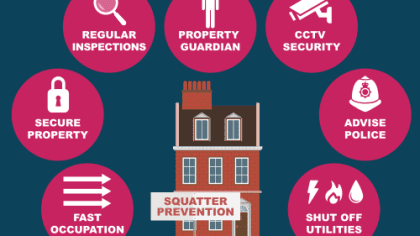In the realm of housing and property management, the terms “lease” and “rent” are often used interchangeably, but they actually represent distinct legal agreements with different implications for both tenants and landlords. Whether you’re considering signing a lease or renting a property, it’s crucial to understand the differences between the two options to make an informed decision that aligns with your needs and preferences. In this comprehensive guide, we’ll delve into the definitions of leasing and renting, explore the key features of each type of agreement, and provide insights to help you determine which option is right for you. Let’s dive in!
Quick Summary
In summary, leasing and renting are two distinct legal arrangements with different implications for tenants and landlords. Leases typically offer fixed terms and long-term stability, while rental agreements provide flexibility and short-term commitment. Whether you choose to lease or rent, it’s essential to understand the key features of each option, including lease duration, financial considerations, responsibilities, and termination procedures. By evaluating your needs and preferences, you can make an informed decision that aligns with your lifestyle and goals.
Definition of Leasing and Renting
At first glance, leasing and renting may seem synonymous, both involving the occupancy of a property in exchange for monetary compensation. However, delving deeper reveals nuanced differences that distinguish these two arrangements in the realm of housing and property management. While both entail the temporary use of a space, the nature and scope of the agreements vary significantly, impacting the rights, responsibilities, and expectations of both tenants and landlords. Understanding these disparities is crucial for anyone seeking to embark on a rental journey, whether as a tenant searching for their ideal abode or a landlord seeking to lease out their property. Let’s embark on a journey through the intricacies of leasing versus renting to uncover the distinct features that define each arrangement.
Key Features of a Lease Agreement
A lease agreement is like a fancy promise between a landlord (the boss of the place) and a tenant (the person renting). It gives the tenant the keys to the property for a set amount of time, usually at least six months to a year. Unlike a rental agreement, which can change whenever the landlord wants, a lease locks things in place. This means the landlord can’t suddenly jack up the rent or kick you out without a good reason. It’s like having a guaranteed spot to crash for a while, which is pretty cool.
One of the best things about a lease is that it’s super clear about who’s responsible for what. It spells out stuff like how much rent you owe, when it’s due, whether you can bring your pet along for the ride, and who’s in charge of fixing stuff when it breaks. Plus, if you’re digging your pad and want to stick around, many leases offer the option to renew. And if there’s ever a problem, like a disagreement over who should fix a leaky faucet or how to divvy up the security deposit at the end, there are rules in place to help sort things out.
So, to sum it up, a lease agreement is like having a solid plan in place for your living situation. It’s all about giving you peace of mind, knowing that you’ve got a cozy spot to call home without any surprises popping up along the way.
Key Features of a Rental Agreement
In contrast, a rental agreement, also known as a tenancy-at-will or month-to-month agreement, provides tenants with more flexibility and shorter lease terms. Rental agreements typically operate on a month-to-month basis, allowing either party to terminate the agreement with proper notice, usually 30 days in advance.
Unlike leases, rental agreements do not typically include fixed terms or renewal provisions, giving landlords and tenants the freedom to adjust rental terms or terminate the agreement as needed. While rental agreements offer greater flexibility, they may also result in less stability for tenants, as landlords have the discretion to change rental terms or terminate the agreement with relatively short notice.
Duration and Flexibility
One of the primary distinctions between leasing and renting lies in the duration and flexibility of the agreement. Leases typically have fixed terms, ranging from six months to several years, providing tenants with long-term stability and predictability. In contrast, rental agreements operate on a month-to-month basis, offering greater flexibility and shorter lease terms. This flexibility allows tenants to adjust their living arrangements more easily and provides landlords with the option to change rental terms or terminate the agreement with relatively short notice.
Financial Considerations
When it comes to financial considerations, leasing and renting offer different advantages and drawbacks for both tenants and landlords. Leases often require tenants to commit to a fixed monthly rent amount for the duration of the lease term, providing stability and predictability for budgeting purposes. Additionally, lease agreements may include provisions for rent increases, security deposits, and penalties for early termination.
In contrast, rental agreements offer greater flexibility in terms of rental rates and lease terms. While tenants may enjoy lower upfront costs and the ability to adjust their living arrangements more easily, they may also face rent increases or changes in rental terms with relatively short notice.
Responsibilities of the Tenant/Lessee
Tenants, whether under a lease or rental agreement, have certain responsibilities to fulfill during their occupancy of the property. These responsibilities typically include paying rent in a timely manner, adhering to the terms of the lease or rental agreement, maintaining the property in good condition, and adhering to any rules or regulations set forth by the landlord or property manager.
Under a lease agreement, tenants are typically responsible for maintaining the property in accordance with the terms of the lease, including keeping the premises clean and sanitary, reporting any maintenance issues to the landlord, and complying with any restrictions on alterations or modifications to the property. Additionally, tenants may be required to obtain renter’s insurance to protect their personal belongings and liability.
Rights and Obligations of the Landlord/Lessor
Landlords, whether leasing or renting out their properties, also have rights and obligations to uphold under the terms of the lease or rental agreement. Landlords are responsible for providing tenants with a habitable living environment, maintaining the property in good repair, and addressing any maintenance or repair issues in a timely manner. Additionally, landlords must adhere to applicable housing laws and regulations, including those related to tenant rights, fair housing practices, and property maintenance standards.
Under a lease agreement, landlords are typically bound by the terms and conditions outlined in the lease, including rent amount and due date, lease duration, security deposit requirements, and pet policies. Landlords may also have the right to enter the property for specified purposes, such as conducting repairs or inspections, provided they give proper notice to the tenant as required by law.
Maintenance and Repairs
Maintenance and repair responsibilities vary depending on the terms of the lease or rental agreement and applicable state and local laws. In general, landlords are responsible for maintaining the property in good repair and addressing any maintenance or repair issues that arise during the tenancy. This may include repairing plumbing or electrical systems, addressing structural issues, and ensuring the property is safe and habitable for tenants.
Tenants, on the other hand, are typically responsible for maintaining the property in good condition and promptly reporting any maintenance issues to the landlord or property manager. Tenants may be responsible for minor repairs or maintenance tasks outlined in the lease agreement, such as changing light bulbs or replacing air filters.
Termination and Renewal Process
The termination and renewal process for leases and rental agreements differ significantly, reflecting the differences in lease terms and duration. Lease agreements typically have fixed terms, ranging from six months to several years, and include provisions outlining the process for lease termination and renewal. Tenants and landlords must adhere to the terms of the lease regarding notice periods, renewal options, and lease termination procedures.
In contrast, rental agreements operate on a month-to-month basis, allowing either party to terminate the agreement with proper notice, usually 30 days in advance. While rental agreements offer greater flexibility in terms of lease duration and termination options, they may also result in less stability for tenants, as landlords have the discretion to change rental terms or terminate the agreement with relatively short notice.
Which Option is Right for You?
Ultimately, the decision between leasing and renting depends on your individual needs, preferences, and circumstances. If you value stability, predictability, and long-term commitment, leasing may be the right choice for you. Leases offer fixed terms, providing tenants with long-term stability and predictability in rental rates and lease terms. However, leases also come with certain obligations, such as adhering to the terms of the lease and maintaining the property in good condition.
On the other hand, if you value flexibility, freedom, and short-term commitment, renting may be a better option. Rental agreements operate on a month-to-month basis, offering greater flexibility in terms of lease duration and termination options. While rental agreements offer shorter lease terms and the ability to adjust your living arrangements more easily, they may also result in less stability and predictability in rental rates and lease terms.
When deciding between leasing and renting, consider factors such as your financial situation, lifestyle preferences, and long-term goals. Evaluate the pros and cons of each option, and choose the option that best aligns with your needs and priorities.
Seeking the Ideal NYC Room?
Imagine not just an ordinary room, but a lively community waiting to be called ‘home’. SharedEasy Coliving welcomes you to a new way of living! Discover our stylish, fully-equipped rooms, designed to complement your dynamic New York life.
Make Your Move Now:
Tap “Get Offer” or dial +1 929-575-4767 to explore how SharedEasy can elevate your living experience. Enjoy the convenience of flexible leases, inclusive amenities, and rooms prepped for immediate move-in. Your vibrant NYC community is calling. Become part of the SharedEasy family today!





